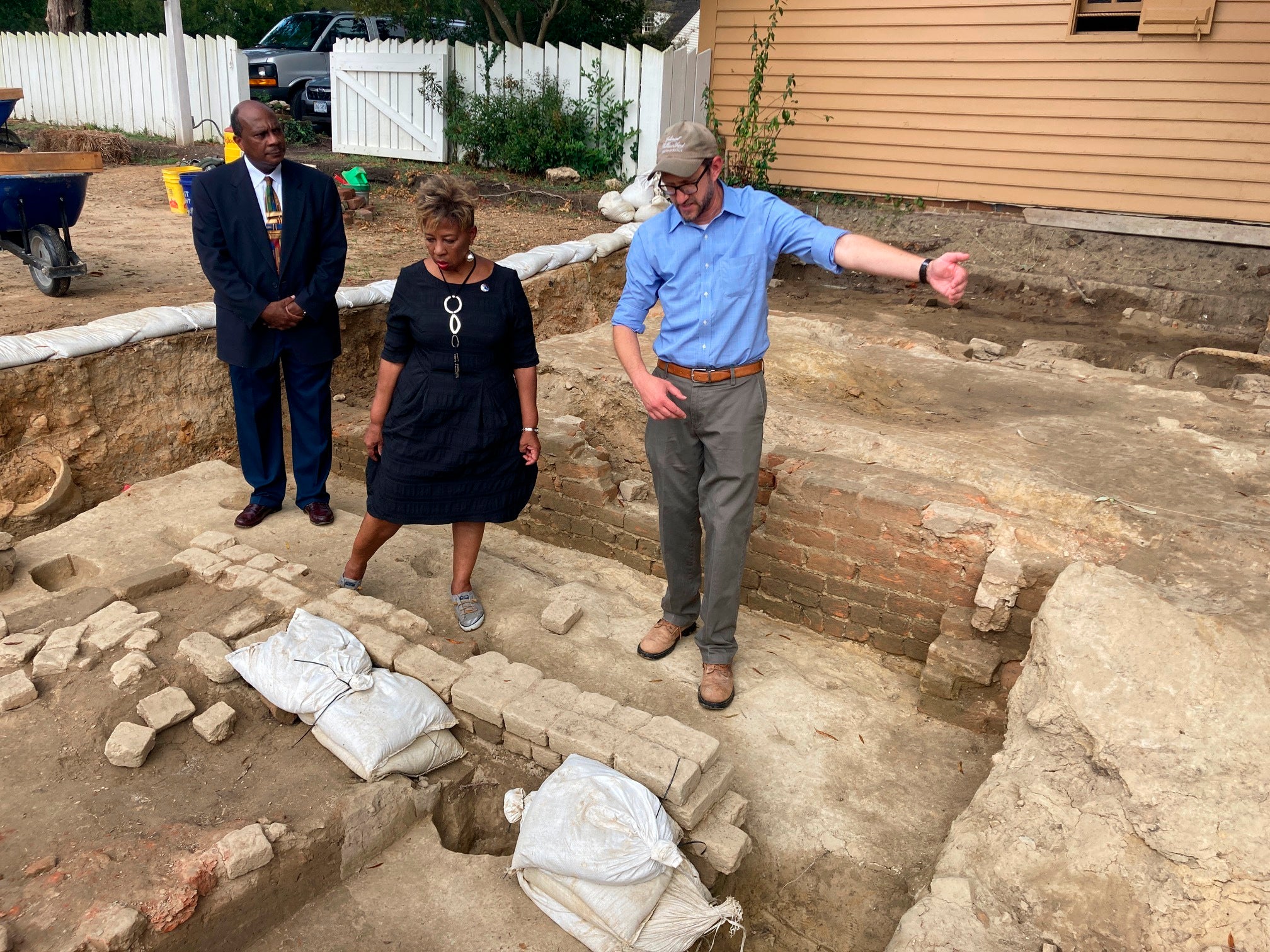Archaeologists in Virginia have begun excavating three suspected graves at the site of the country’s oldest Black church Monday, according to The Associated Press. Williamsburg, Va. is a prominent location for colonial history, however, most historic sites neglect to share the stories of the Black people who lived there too.
Suggested Reading
With the growing emphasis on teaching and learning Black history, First Baptist Church was prime location to continue the story.
According to their website, the church was first organized in 1776 by a group of enslaved Black people and free Black people who wanted to praise God in their own way. Led by Rev. Moses, they built a brush arbor miles out of town to gather discreetly for prayer and worship. By 1781, they were offered a carriage house on Nassau Street to use by one of Williamsburg’s landowners.
The church was renamed First Baptist Church of Williamsburg in 1863 and they’ve been serving the congregation on 727 Scotland Street since. Long-time members of the church believed their descendants were buried there based on family stories.
More on the excavation from AP News:
When the church’s original structure was uncovered last year, First Baptist Pastor Reginald F. Davis said it was “a rediscovery of the humanity of a people.”
“This helps to erase the historical and social amnesia that has afflicted this country for so many years,” he said.
If human remains are found in the plots that are being targeted, DNA tests and analyses of bones will be conducted, said Jack Gary, Colonial Williamsburg’s director of archaeology.
DNA analysis should be able to determine the person’s eye color and skin tone as well as propensity for certain diseases and genomic ancestry. Analysis of bones can show a person’s age when he or she died as well as their quality of life and the physical stresses they endured, Gary said.
The remains will be taken to the Institute for Historical Biology on the campus of William & Mary, a university in Williamsburg, for cleaning and bone analysis. The University of Connecticut will conduct the DNA testing.
The report says out of the 2,000 people in Virginia during the 18th century, enslaved people made up more than half of them. Unfortunately, most of those people were undocumented when they were free putting them at risk of being mistaken for a runaway slave because they couldn’t prove their citizenship. Not only did this put them at a further socio-economic disadvantage but also made it difficult for generations down the line to figure out who they were.
The church members ultimately want to submit DNA from the grave sites to determine whether they’re related to those who are buried at First Baptist. The human remains will eventually be reinterred, per AP News. Before the excavations began, the church members held a private blessing in honor of the descendants they hope to discover.
“It was important for us to have that ceremony — to bless the ancestors. Because we don’t know their names. Their names are known only to God,” said Connie Matthews Harshaw, board president of a foundation that preserves First Baptist’s history.
Straight From 
Sign up for our free daily newsletter.



